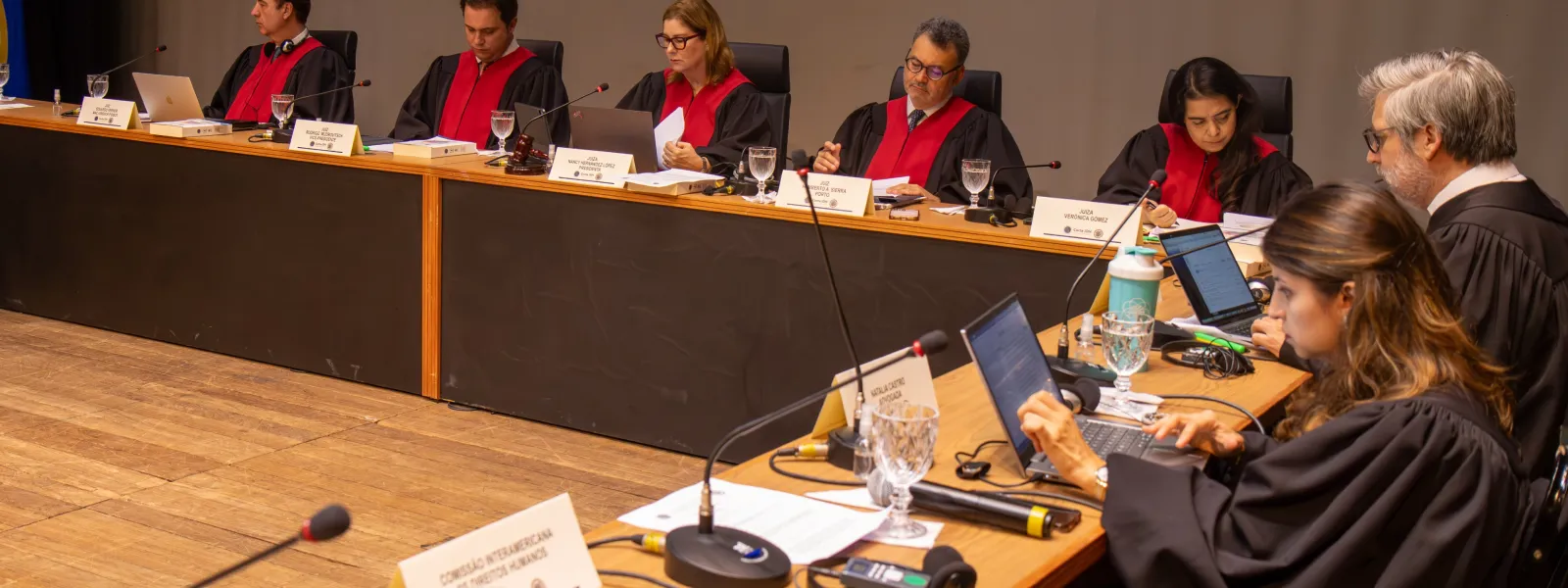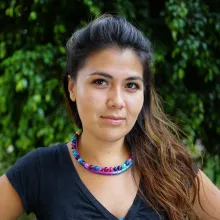
Decisión de la Corte Interamericana sobre emergencia climática: un hito para el mundo
Corte IDH / Flickr
Texto publicado originalmente en Animal Político.
El próximo 3 de julio de 2025, la Corte Interamericana de Derechos Humanos (Corte IDH) emitirá su tan esperada Opinión Consultiva 32 (OC-32) sobre la emergencia climática y los derechos humanos, solicitada conjuntamente por los Estados de Chile y Colombia en enero de 2023.
En su dictamen, la Corte IDH abordará cuestiones clave del derecho internacional que ambos Estados incluyeron en su solicitud, como la naturaleza y el alcance de las obligaciones estatales en contextos de emergencia climática.
Adicionalmente, el tribunal se pronunciará sobre los deberes de prevención y garantía de los Estados en materia de derechos humanos frente al cambio climático, así como respecto de sus obligaciones específicas hacia grupos diferenciados, como mujeres, niños y niñas, pueblos indígenas y personas defensoras del ambiente. También hará precisiones sobre la responsabilidad común pero diferenciada de los Estados en materia de derechos humanos en el contexto de la crisis climática, entre otros aspectos.
La OC-32 será también el resultado de un proceso sin precedentes ante el Sistema Interamericano de Derechos Humanos en el que decenas de Estados, organizaciones de la sociedad civil, pueblos indígenas, activistas y miembros de la academia participaron activamente mediante intervenciones orales en audiencias públicas y observaciones escritas.
Sin duda, esta decisión será un hito no solo para el continente americano, sino también para el desarrollo del derecho internacional en materia de clima y derechos humanos a nivel global.
Una contribución clave al derecho internacional
La decisión de la Corte IDH se enmarca en otros procesos de opinión consultiva muy relevantes en todo el continente. Ya en 2024 el Tribunal Internacional del Derecho del Mar hizo pública una decisión importante acerca de las obligaciones de los Estados en relación con la crisis climática y la protección del medio marino.
Además, en marzo de 2023, la Asamblea General de Naciones Unidas solicitó formalmente una opinión consultiva a la Corte Internacional de Justicia (CIJ) sobre las obligaciones de los Estados respecto al cambio climático, impulsada por Vanuatu y respaldada por más de 130 países. La decisión final de este proceso está aún por conocerse.
La Opinión Consultiva 32 de la Corte IDH será, sin duda, de la mayor relevancia por al menos cinco razones:
1. Aportes desde el enfoque de derechos humanos
Será la primera vez que un tribunal regional de derechos humanos defina con claridad obligaciones concretas para que los Estados protejan efectivamente a las personas y comunidades afectadas por la crisis del clima. Incorporar el marco de derechos humanos a la emergencia climática es clave para enriquecer el contenido de las obligaciones estatales, complementar el régimen de la Convención Marco de las Naciones Unidas sobre el Cambio Climático y aportar una perspectiva de justicia en la respuesta a esta problemática.
2. Continuidad del liderazgo del tribunal
Con este dictamen, la Corte IDH fortalecerá la rica jurisprudencia que ha desarrollado y que ha sido muy relevante para vincular la protección del ambiente con los derechos humanos. Ya en su Opinión Consultiva 23 de 2017 estableció que los Estados tienen obligaciones tanto dentro como fuera de su territorio para prevenir daños ambientales que afecten los derechos humanos. Y en 2024, al resolver el caso “Comunidad de La Oroya vs. Perú” —el primer caso contencioso sobre contaminación ambiental en un contexto urbano—, el tribunal desarrolló las obligaciones de los Estados y ordenó medidas de reparación integral.
3. Énfasis en grupos con necesidades de protección reforzada
La Corte IDH ha desarrollado una rica jurisprudencia para la protección de pueblos indígenas, comunidades afrodescendientes y pueblos en aislamiento voluntario, así como en relación con mujeres, niños y niñas. Estos grupos suelen enfrentar los impactos más severos de la crisis climática, por lo cual la experiencia del tribunal será clave para delimitar en la OC-32 las obligaciones reforzadas de los Estados en su protección.
4. Debida diligencia de las empresas
La Corte IDH ha reconocido que los Estados tienen el deber de prevenir, supervisar y sancionar actividades empresariales que afecten los derechos humanos. En varios casos contenciosos, ha delimitado las obligaciones estatales respecto de las empresas y con la OC-32 puede enriquecer los estándares de debida diligencia climática en el ámbito internacional. Esta doctrina será muy valiosa para fortalecer la rendición de cuentas de actores no estatales en contextos de emergencia climática.
5. Reparación integral de las pérdidas y daños
Desde sus primeros fallos, la Corte IDH ha establecido que la reparación del daño debe ser integral, incluyendo elementos como la restitución, la indemnización, las medidas de satisfacción y las garantías de no repetición. Este enfoque, incorporado en el dictamen por venir, puede aportar elementos clave al debate internacional sobre “pérdidas y daños” (loss and damage), que cada vez cobra más fuerza, proyectándose como una exigencia legítima de comunidades y países afectados por los impactos de la emergencia climática.
De esta forma, la decisión que emitirá la Corte Interamericana no solo será histórica para el Sistema Interamericano de Derechos Humanos. Su precedente llegará en un momento clave para nutrir y fortalecer el proceso de la opinión consultiva de la Corte Internacional de Justicia, ofreciendo un enfoque centrado en las personas y en los derechos humanos.
En un escenario global donde la acción de los Estados sigue siendo insuficiente, el derecho internacional puede y debe jugar un papel fundamental y transformador.
El dictamen de la Corte IDH representa una oportunidad crucial para consolidar un marco normativo claro que haga frente a la emergencia climática como uno de los desafíos más latentes que enfrentamos actualmente como humanidad.
Liliana Ávila

Liliana A. Ávila es colombiana y directora del Programa de Derechos Humanos y Ambiente de AIDA. Trabaja desde la oficina de Bogotá. Liliana es abogada por la Universidad Externado de Colombia, especialista en derecho constitucional y tiene una Maestría en Argumentación Jurídica de la Universidad de Alicante en España. Cuenta con experiencia en derecho internacional de derechos humanos y sistemas internacionales de protección de derechos humanos. Es profesora de derecho internacional en la Universidad Externado y ha trabajado como asesora legal en materia de derechos humanos, derecho internacional humanitario y salud pública.
